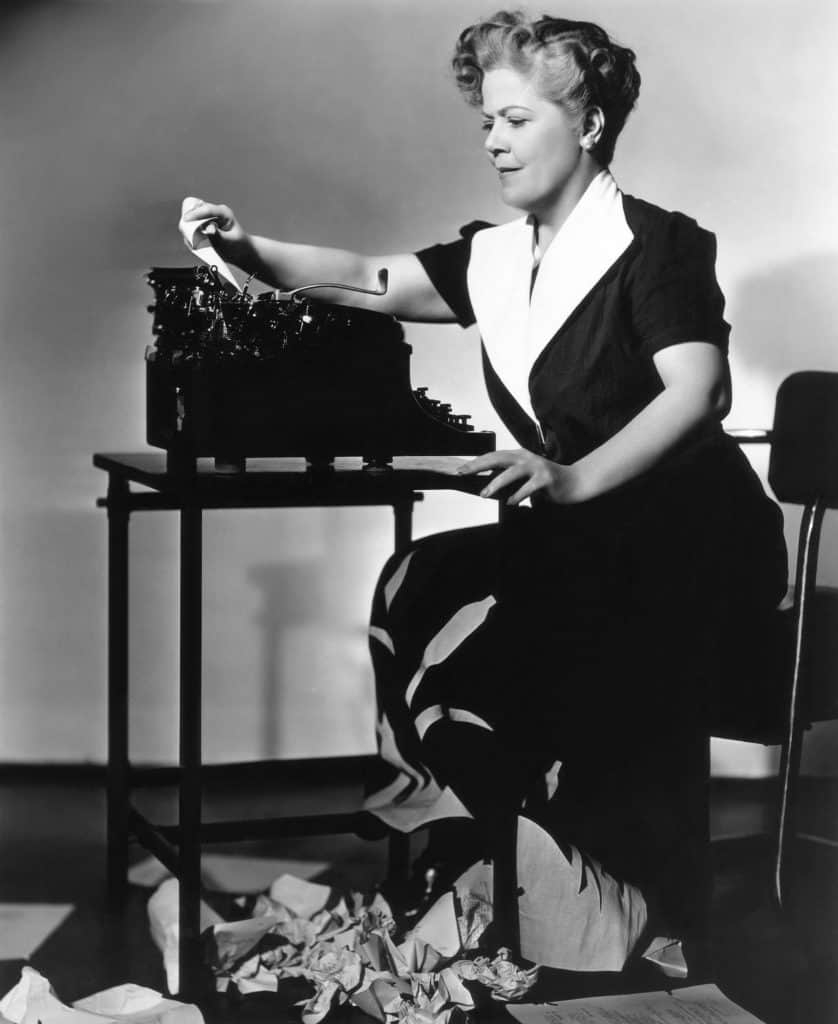
How To Make Writing Fun


Writing isn’t an easy process — even for professional writers who find the task fulfilling. Writer’s block, deadlines and uninteresting topics can dull the senses of even the most fervent scribes. And if you’ve never found writing interesting? Then figuring out how to make writing fun may seem like a futile endeavor.
However you reached the point of literary exhaustion, the good news is there are ways to transform the process into something interesting or even — dare we say it? — fun. Creating a written piece, whether fictional, educational or corporate in nature, can be intensely rewarding; you just have to identify what is provoking your feelings of frustration or disinterest and find strategies to resolve the issue.
Tricks To Make Writing Interesting
There are typically two issues that interfere with people’s enjoyment of writing: struggling with mechanics and lack of inspiration. For those to whom writing doesn’t come easily, every sentence may become an unwanted puzzle. First of all, it’s alright to get frustrated with English grammar — it’s not known for its consistency or logic. Additionally, those with learning disabilities such as dyslexia may have a more difficult time with the written word. If you fall into this category, know that you’re not doomed to failure. There are many resources out there to help you write well and learn how to make writing fun — many are easily accessible via the internet and other technology.

What if you write as a hobby or chosen career, but now find the task droll or difficult? All writers experience this occasionally, and it isn’t anything to feel ashamed of — you’re still a writer even if you don’t enjoy writing at the moment. The most reliable solution is to give yourself time — eventually you’ll find your way back to the pages. Of course, most writers aren’t content to simply wait. Fortunately, there are techniques that can spark your creativity.
Many of these resources can help you find inspiration no matter your background. Here are seven tried-and-true techniques to help you discover (or rediscover) how to enjoy writing.
1. Find a Community
One of the best resources in any predicament is other people. Many people both love and struggle with writing and have wisdom to offer about the experience. There are numerous groups that meet in-person at libraries, community centers and schools to offer support. If you dislike the solitude associated with writing, you may benefit from meeting with like-minded others; many groups do collaborative projects or practice techniques together. Supportive members are also willing to share their strengths by explaining their creative approach and offering their own reliable resources.

If your schedule doesn’t allow for in-person meetings or if you prefer anonymity, you may find your community on internet forums. These tend to be organized by genre and can include people from all over the world. One such example is the NoSleep community on Reddit. This forum is filled with amateur and professional writers who post horror stories, discuss their experiences and announce publishing opportunities. If you’re an aspiring novelist, you can find similar camaraderie through NaNoWriMo, an organization that hosts National Novel Writing Month every November and NaNo Camps in April and July. On its website, you can find a variety of resources:
- Local meet-up groups
- Word count tracking dashboard
- Writing tips
- Pep talks from renowned authors
- Writing prompts
- Free ideas for anyone to use
Various communities have different things to offer, but they all have one very important benefit: a sense of identity. A community that sees you as a writer can help you identify as one. It can be difficult to feel you deserve the title if you don’t excel at sentence structure, but the truth is, if you write, you are a writer. Taking this title for your own can help you conquer insecurities and persevere when the going gets tough.
2. Take the Pressure Off
It’s easy to get your hands on a masterfully crafted piece of literature and feel dismay at your own lack of ability. But when we give in to those feelings of insecurity, we’re forgetting one important thing: Those masterpieces didn’t start out that way. Hemingway himself said that “the first draft of anything” is terrible. You’re not going to write an earth-shattering, award-winning piece on your first draft, so you should stop expecting to.

Of course, that’s easier said than done. We’re often our own worst critics and have to learn how to take the pressure off ourselves. Fortunately, there are a few techniques you can try to give yourself a break.
First, if you edit during your first draft, stop. Accept that your first draft is meant to get ideas on paper and allow your creativity to flow. Editing can interrupt that flow and keep you from finishing a draft at all. If you have trouble turning off your inner editor, try the following:
- Imagine putting the criticisms in a box and putting it away on the shelf; do this every time you find yourself criticizing your work
- Listen to music to drown out the voice telling you a draft isn’t good enough
- Make a physical note of the criticism if it’s constructive, then set it aside for the editing stage
If you find yourself hesitating to get started because of self-criticism, this second technique may help: Have a practice session before you start writing in earnest. Research shows it takes approximately 25 minutes to enter creative flow, which means anything before that can feel stilted and the equivalent of trudging through sand. Instead of expecting smooth sailing from the outset, anticipate a slog for the first half hour and write about anything but what you’re meant to. Start a journal entry about the day, write a silly poem or play a word association game — try anything interesting to get you in the right mindset. Once you feel comfortable and the words are flowing, switch over to your intended project.

Third, don’t punish yourself. Rewards are a good way to keep yourself on-task, and many writers use them as motivation, but don’t punish yourself for not meeting your goals. Everyone has hard days, and sometimes you just won’t be able to write as much or as well as you want. When this happens, don’t berate yourself; instead, think about what you learned and focus on tomorrow being a new chance to excel.
3. Practice, Practice, Practice
Like any sport or technical skill, writing ability can be developed by lots of practice. The more experience you have with sentence structure, tone and other literary components, the more effective you’ll become at using them. The best part about practicing is that you have an immense degree of freedom; there’s no limit on how to make writing fun when you know no one else will see the finished product.
Many people enjoy using prompts to stimulate their imagination, and there are plenty of sources:
- Books on writing tips
- Journals filled with daily prompts
- Social media sites such as Tumblr, Pinterest and Twitter
If you prefer to write without limitations, freewriting may be a better fit. This exercise entails writing for a set amount of time and setting down whatever pops into your head without concern for consistency, grammar or punctuation. Experiment with margins, shapes, white space and anything else that strikes your fancy.

Whatever your approach to practice, try to get some time in every day. Getting yourself into a creative headspace daily will make it easier to tap into creativity and reinforce the good habits you’re developing. As you get more comfortable with the writing process, you’ll discover things you enjoy and look forward to.
4. Write Something Only You Can Write
This strategy is easier to do if you have control over your topic, but you can still use it as a guide when writing reports, summaries or other strict formats. Whatever the piece you’re working on, you’re bringing a unique perspective that only you can describe. This may come from expertise, experience or being a fresh pair of eyes. When you’re in a rut, lean into what makes your perspective unique and use it to craft a piece that offers something invaluable.
If you’re writing fiction, think of what makes your story unique. Don’t worry about the plot or characters being original — not every story has to be new to be … well, new. Anthropologists have identified narrative progressions that emerge repetitively across cultures, and if your story falls into one of these patterns, that isn’t necessarily a bad thing. Neil Gaiman advises young writers that much of what makes a story special isn’t the story itself but how they tell it. So draw on your experiences and passions to create a voice that no one else can use.
5. Realize That “Good” Is Relative
If you want to learn how to enjoy writing, you need to stop comparing yourself to others. While learning from and emulating your favorite writers can be useful in developing your style, it’s essential that you remember that writing isn’t a competition. Reading is an intensely personal experience informed by your past and preferences, and readers can enjoy a range of material and find it all “good.” Comparing your work to others’ is a sure-fire way to inflame your insecurities and to get stuck in a rut.

Of course, you know as well as we do that there’s such a thing as “bad” writing. You’ve likely read (and written) some of it yourself. So how can you identify if what you’ve created falls into the “good” or “bad” camp? The simple test is to ask, “Does this piece do what I want it to do?” That goal could be to invoke a certain emotion, educate your audience or execute a new technique. While most pieces won’t perfectly meet your goal (such is the nature of writing), this is a good gauge to determine how well written your final results are. Creating your definition of success takes the pressure off and helps you work toward a concrete purpose, rather than leaving you lost.
6. Prewrite Extensively
When you’re figuring out how to make writing fun, remember that there’s a lot that goes into writing beyond organizing words into sentences. Researching, brainstorming and prewriting are all huge but unseen parts of the craft. If you find sentence structure tedious, make the process easier by creating highly detailed outlines, charts and other prewriting materials. This allows you to organize your thoughts before creating a paragraph.
Fiction writers can also find prewriting beneficial. While many people enjoy the idea of sitting down with a blank sheet of paper and jotting down whatever comes to mind, most of us have to do at least a modicum of planning. Prewriting can help you experiment with plot lines, develop characters and build worlds. If you’re in the middle of a piece, a little prewriting can also give you a much-needed break by allowing your brain to switch gears. Taking a step back from your project may give you the breathing room you need to reignite the spark of inspiration.
7. Try a Different Environment
The classic idea of a writer’s den is somewhere quiet, sequestered and surrounded by books. If you’re someone who loves the outdoors or being around people, the quiet can be maddening. If you need more stimulation from your environment, learning how to enjoy writing can have a lot to do with where you write. Changing up your setting can also spark creativity by putting you in a different mindset.
If you have the opportunity, write outside. A park or even your back porch can be a great area to take in the sun while you craft your latest piece. If being around others helps your energy, go to a coffee shop or other public area. If you want to be around people but still need a quiet environment, your local library is a great option.

What if you’re stuck in an office or cubicle? This is a little trickier, but there are ways to alleviate the sensation of being cooped up. Try redecorating your office or rearranging your cubicle. If possible, reorient your desk to face a different direction. If your place of work allows it, bring in small potted plants to add a touch of greenery.
Share Your Own Helpful Tips
These tips are by no means the only way to shake things up when you’re in a writing slump. What do you do when you need motivation or inspiration? Comment to share with us how to make writing fun with examples from your own experience!
- Why and When To Use a Euphemism - May 30, 2023
- How To Perfect Your Skills To Get Freelance Writing Work - May 2, 2023
- How To Move to Online Content Writing Jobs From Full-Time Employment - December 27, 2022


